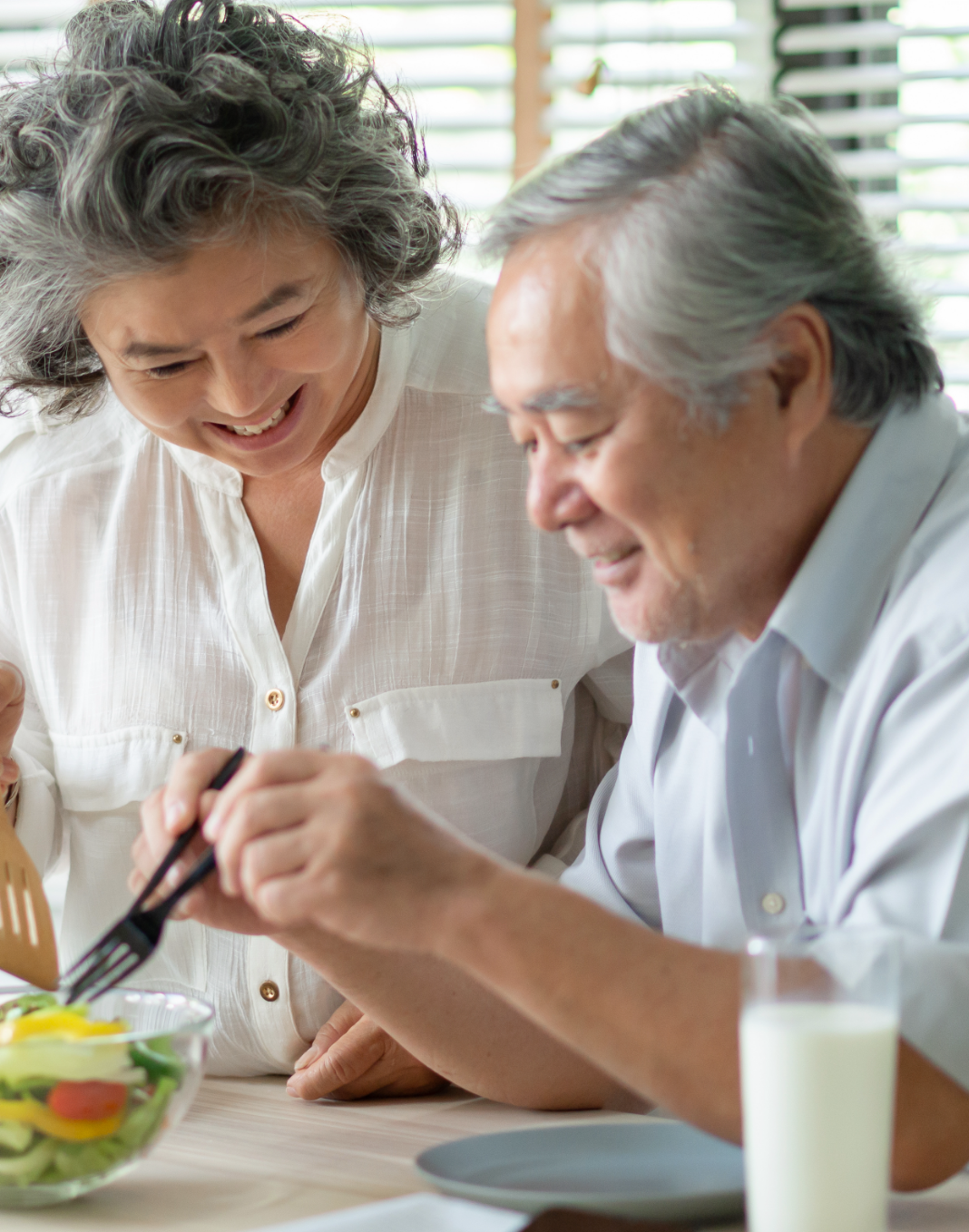We understand that cancer treatments can be stressful for everyone involved. It is okay to ask for help. Here are some things to take note of when considering CAR-T cell therapy:
Having a caregiver with you
If you are travelling for treatment outside of your country
Disclaimer: The organizations and websites listed on this page are maintained by third parties over whom Novartis Pharmaceuticals Corporation has no control. As such, Novartis Pharmaceuticals Corporation makes no representation as to the accuracy or any other aspect of the information supplied by these organizations or contained on these websites.


Deciding on a treatment or therapy option can be daunting. Start a conversation with your care team by asking questions that you or your loved ones may have about CAR-T cell therapy. By doing so, you can learn more about the options available and make a more informed decision when considering the next steps.
Begin by describing your treatment history so that they can discuss or refer you to find the best treatment option for you or your loved one.
Next, you may consider asking the following questions across different treatment stages to help you decide if CAR-T cell therapy is right for you.
Download the handy doctor discussion guide to determine with your doctor if CAR-T cell therapy is right for you.

A healthy and balanced lifestyle can help you feel better and stronger before, during, and after treatments. Patients who stay active by doing regular exercises benefit from maintaining heart and lung health, building muscles, improving sleep, reducing cancer-related fatigue, and boosting emotional well-being.
Most nutritionists agree that eating a mix of foods helps ensure you get the nutrition you need. A nutritious diet rich in calories, protein, vitamins, and minerals gives the body energy to recover fully and manage your treatment’s side effects better. Furthermore, it supports the immune system, reduces the risk for some diseases, and helps the body replace blood cells and healthy tissues damaged from cancer treatment.
In general, cancer patients have an increased need for protein, carbohydrates, and healthy fats. A balanced diet1 includes:

After undergoing treatment, your taste and appetite may transform dramatically. Hence, eating well can be challenging.
Here are some tips to help you eat better:
The nutritional, physical and emotional needs of cancer patients may vary individually. Talk to your doctor, nurses, care team, and a registered dietitian to better understand your specific needs and recommended eating and exercise plan.
Cancer treatments can be stressful for everyone involved. It’s just as important to ask for help from your loved ones and seek care for your mental and emotional well-being. Some ways to help reduce stress and anxiety include taking time for self-care and practicing mindfulness. Mindfulness can help you focus on the present and bring hope into your everyday life.
Explore additional articles and videos or resources to support you on your treatment journey:
There are 5 CAR-T cell therapies that the FDA has approved. These include8:
They are approved to treat these types of cancers:
Yes, CAR-T therapy remains as an option for patients in need of a potentially curative therapy to treat their cancers. Speak to your child’s care team to understand the steps their treatment centers have taken to ensure the health and safety of their patients.9
While there is still limited information about the effectiveness of these vaccines in patients with active cancer and who are on immunosuppressive therapies, many medical experts have shared that these vaccines are safe for use in cancer patients. There is no data at present to show that COVID- 19 vaccines have any impact on patients’ cancers.10
However, it is important to speak to your child’s care team about your child’s immune system to make a more informed decision.
Yes, make a list of the medication (prescribed or over the counter) and supplements your child is taking. You will also need to inform your child’s care team how much and how often your child is taking them and what it is treating.11
CAR-T patients generally do not lose their hair while undergoing therapy.12
Perhaps 4-6 weeks post treatment. Your care team will establish a monitoring plan for ongoing follow-ups. The Food and Drug Administration (FDA) recommends that all patients be followed for 15 years after infusion.13
CAR-T cell therapy continues to be an innovative immunotherapy option for cancer patients. This potentially curative treatment is also currently being studied to treat other types of cancers which don’t respond to or have returned after treatment, including follicular lymphoma (FL), chronic lymphocytic leukemia (CLL), and multiple myeloma (MM).14
Other CAR-T cell therapies are being studied to target different types of cancer, such as brain tumors, breast cancer, acute myeloid leukemia, Hodgkin’s lymphoma, neuroblastoma, and pancreatic cancer. Learn more about these on clinicaltrials.gov.
Food and nutrition. (n.d.). Lls.Org. Retrieved March 11, 2022, from https://www.lls.org/managing-your-cancer/food-and-nutrition
American Cancer Society. (2019). Nutrition for the patient with cancer during treatment. American Cancer Society.
Diet guidelines for immunosuppressed patients. (n.d.). Lls.Org. Retrieved March 11, 2022, from https://www.lls.org/managing-your-cancer/food-and- nutrition/diet-guidelines-immunosuppressed-patients
UCSF Health. (2019, March 14). Diet for cancer treatment side effects. Ucsfhealth.Org; UCSF Health. https://www.ucsfhealth.org/education/diet-for- cancer-treatment-side-effects
CAR T-cell therapy: Who might benefit? (n.d.). WebMD. Retrieved March 11, 2022, from https://www.webmd.com/cancer/features/who-benefits-car-t- cell-therapy
Bachanova, V., Bishop, M. R., Dahi, P., Dholaria, B., Grupp, S. A., Hayes-Lattin, B., Janakiram, M., Maziarz, R. T., McGuirk, J. P., Nastoupil, L. J., Oluwole, O. O., Perales, M.-A., Porter, D. L., & Riedell, P. A. (2020). Chimeric antigen receptor T cell therapy during the COVID-19 pandemic. Biology of Blood and Marrow Transplantation: Journal of the American Society for Blood and Marrow Transplantation, 26(7), 1239–1246. https://doi.org/10.1016/ j.bbmt.2020.04.008
COVID-19 vaccines in people with cancer. (n.d.). Cancer.Org. Retrieved March 11, 2022, from https://www.cancer.org/treatment/treatments-and-side- effects/physical-side-effects/low-blood-counts/infections/covid-19-vaccines-in-people-with-cancer.html
Frankly Speaking About Cancer, Cancer Support Community, Gilda’s Club. (2021). CAR T Patient & Caregiver Guide. The Cancer Support Community. Retrieved March 11, 2022, from https://www.cancersupportcommunity.org/sites/default/files/fsac/CAR_T_Patient_and_Caregiver_Guide.pdf
Frequently asked questions about CAR T-cell therapy. (n.d.). Uchicagomedicine.Org. Retrieved March 11, 2022, from https://www.uchicagomedicine.org/ cancer/types-treatments/car-t-cell-therapy/frequently-asked-questions
Novartis.(2021a).KymriahpALLPatientBrochure.https://www.us.kymriah.com/siteassets/kymriah/all/pdf/kymriah-pall-patient-brochure.pdf
CAR-T cell therapy: Pioneering cancer therapy. (n.d.). Novartis. Retrieved March 11, 2022, from https://www.novartis.com/research-development/ technology-platforms/cell-therapy/car-t-cell-therapy-and-beyond/car-t-cell-therapy-pioneering-cancer-therapy
Disclaimer:This is global website for information on CAR-T Cell Therapy and is intended for Patients and Caregivers outside the US. The information on the site is not country specific and may contain information that is outside the approved indication in the country in which you are located.